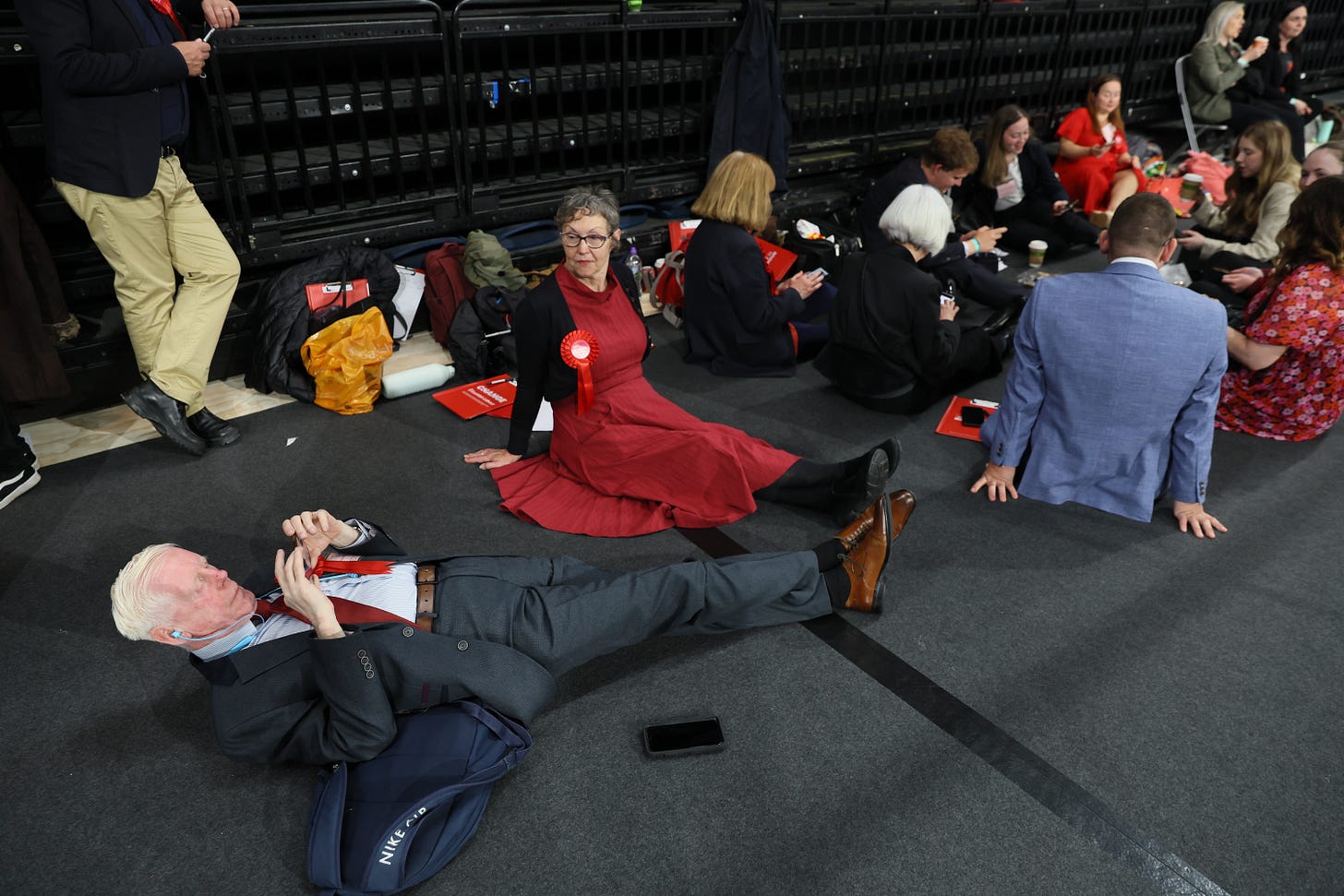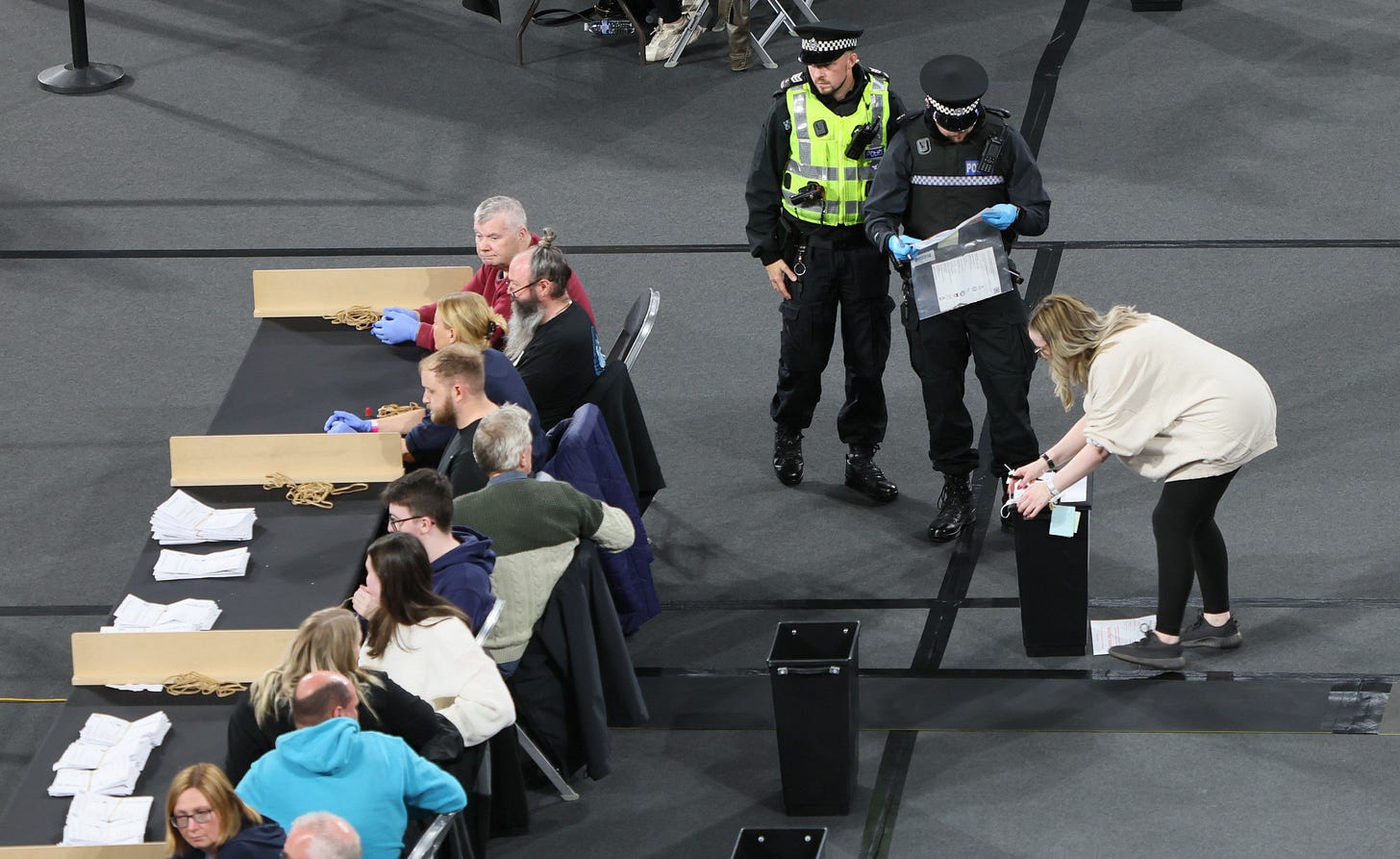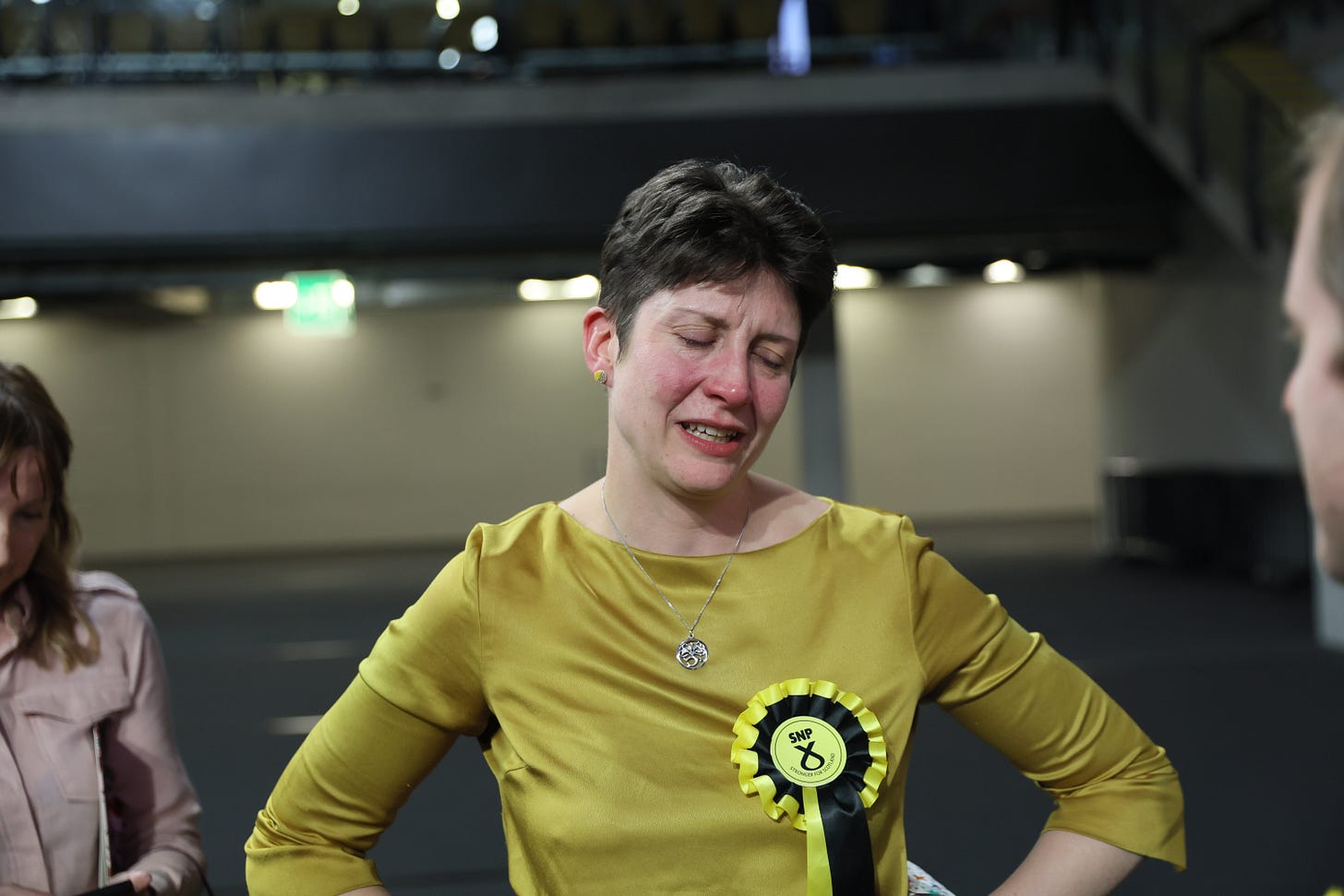Behind the scenes of election night in Glasgow
Tears, unemployment and police investigations: Political correspondent Stewart Paterson shares what it's like to cover one of the biggest nights in politics and what it means for the city.
The first ballot boxes from across Glasgow arrive at the Emirates Arena around 10.30pm on Thursday night. Alongside them, journalists head into the vote count prepared for an all-nighter alongside the city’s Westminster hopefuls. After weeks of campaigning for a place in the House of Commons, this is it. They’ll find out in a few hours if they have a job on Monday.
This is the seventh General Election that political correspondent Stewart Paterson has covered since his career began in 1999. The Glasgow Times journalist has been up for nearly 24 hours when I ask him to peel back the curtain on election night - one of the most exciting nights in politics.
“The election counts are really good, especially when there is a big change for one party or another,” he says. “In 2015 it was great seeing it change, a big shift – and the same again tonight. Regardless of who wins it, it’s interesting seeing how people are thinking and how their motivations can change.”
“Regardless of who wins it, it’s interesting seeing how people are thinking and how their motivations can change.”
The exit poll was out before Stewart and his colleagues arrived at the arena. Though the official count had yet to start, “people had an idea of what was coming”.
The arena is divided into six counting areas representing Glasgow’s six constituencies. Dozens of staff wait listlessly to begin. Boxes are opened and verified but it will be hours before the real count begins. After verifying votes, someone needs to check the papers are for the right polling station. Afterwards, they are divided up by party.
The early monotony is briefly interrupted when police officers file in to trace potentially fraudulent votes. “It was planned,” Stewart says. “The council had been alerted to possible voter identification fraud – someone’s turned up to vote and somebody has already voted under their name.”
Officers know exactly where they are headed and swiftly seek out the precise ballot paper from the specific box. Of the four cases reported, three were followed up: two in Glasgow Southwest and one in Glasgow West. Opening a ballot box before the count is illegal so the operation must be carried out at Emirates Arena. Once the suspected ballots are in an evidence bag and whisked away for investigation, attendees prepare for the real excitement of the night.
The exit poll suggested it would be a good night for Labour. For the SNP? Not so much. “You could see it in their faces already,” Stewart says. “When they’re doing the verification the candidates and all their agents are doing what they call a sampling of the ballot papers.”
Teams from each political party stand around the boxes, eyeing up how many ballots are coming in for each. The size of the piles begins to tell a story of who’s headed down South next week. “At that point, there’s not much writing we can do,” Stewart says. “All you’re doing is observing and looking. People watching. You can see who's smiling and who’s happy. And you can see who’s a bit concerned.”
Some candidates look seriously worried. Others were utterly dejected. As the ballots piled up it became clear who was going to lose and “in some cases, they were losing by quite a lot of votes”. “That was the first sense that we got of what the results were going to be in Glasgow,” he says.
“Suddenly all of these people have lost their jobs.”
Elections are a bloodsport, especially ones that dramatically flip majorities on their heads in a complete shakeup of our political representation. Once the results start to come in the floodgates are open.
“Suddenly all of these people have lost their jobs,” Stewart says. “Yesterday they had a well-paid job making nearly £85,000 a year and then tomorrow, they don’t have it. They do get some payout – none of them are going to a food bank on Tuesday morning. But there’s still that sense of purpose. What do you do?
“If they’ve been an MP for the last nine years, they maybe thought they had another five years at least. And now they don’t. What do they do?”
As the old lick their wounds, a new class of MPs has just days before their new role begins. “It’s quite something for a lot of these people who never dreamed even when they were councillors that one day they would be an MP,” Stewart says. “It probably never crossed their minds. All of a sudden, they’re going to the House of Commons, they’re going to Westminster. They need to be down in London on Monday morning for an induction and all of a sudden, they’re an MP - something they’ve seen people do on TV for years and years.
“They’ll be expected to stand up and speak in the House of Commons. That must be daunting. Never mind going to an election count for the first time, imagine standing up in the House of Commons expected to debate for the first time. That must be terrifying.”
Labour’s clean sweep of all six Glasgow constituencies was confirmed just after 5am, overturning every SNP seat. Labour’s Maureen Burke, John Grady, Gordon McKee, Patricia Ferguson, Zubir Ahmed and Martin Rhodes are elated. They’re headed to Westminster. Tears stream down SNP candidate Alison Thewliss’s face. She and her colleagues Stewart McDonald, Chris Stephens, Anne McLaughlin, Carol Monaghan and David Linden have lost. But what does it mean for our city?
Stewart says the race felt closer in the lead-up than it was on the night. When the SNP scooped up all the seats in 2015, they did so by huge margins of up to 10,000 votes. Labour majorities this time were less than half that. “It was a big shift obviously because every seat changed hands, but it doesn’t feel the same way it did in 2015 when it went to the SNP for the first time.”
Glasgow was a Labour stronghold for decades going back to the 1940s and 50s. Labour historically won “absolutely everything”, but that all changed after the 2014 referendum. The SNP won all of the Westminster seats, won the council election and secured MSPs for every constituency. People started to merge the SNP with their own identity, the way they used to with Labour.
“But it hasn’t lasted with the SNP the same way it did for Labour. It endured for decades with Labour,” Stewart explains. “I thought the SNP were starting to take hold in a way that they would always win seats here. It seemed they were always going to be one of the biggest parties and win maybe half the seats in every election at least. That seems to have weakened.”
People who joined the SNP cause after the referendum thinking Scotland would be independent in the next five to 10 years are starting to think independence is further away than it ever was. A united effort to purge the UK Government of the Tories has picked up the momentum left behind by the shattered dreams of independence.
Now, after their election victory, Labour have set their sights on the Scottish Parliament election in 2026 after placing third in 2021.
“How much of that vote for Labour is an anti-Tory vote?”
“Based on the results today they probably could. But will that last? How much of that vote for Labour is an anti-Tory vote?” Stewart points out.
Anything can happen in the next two years. “Labour doesn’t have a lot of power in the city yet because it doesn’t run the council and it doesn’t have a lot of MSPs – but it’s got support again. Ten years ago people thought they were finished in Glasgow but that’s been exaggerated unless this is a one-off, freak election.”
After spending the night in Emirates Arena and the morning in the office filing copy for the paper, Steward is ready to call it a day. After covering seven elections over two decades, there’s still a raw sense of excitement in watching democracy unfold before your eyes, it seems.
“Things can change and they change really quickly,” he says. “You may think things will be the same for the next five to 10 years and they’re not. It’s unpredictable and it keeps you on your toes.
“You might think you know something and you don’t. Politicians and campaigners get caught off guard as well. You just never know what people are thinking.”
You can read all of Stewart Paterson’s reporting for the Glasgow Times here.
The Sunday Edition will soon be reserved for paying subscribers only. The daily newsletter will always be free, but consider upgrading your subscription to support The Wrap











